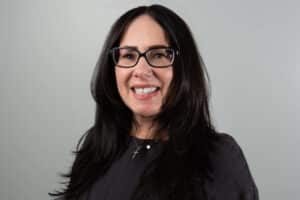Mr. Chitty began his Social Work career in 1986 working as a Peace Corps Volunteer in Sierra Leone, West Africa. Serving in this capacity had a profound effect on James’s career aspirations. During his time in Sierra Leone he lived in a small rural village and developed very close relationships with people who he eventually came to considered as family. He was shown the true meaning of compassion as he watched them live their lives with honor and dignity while struggling against very harsh circumstances. They seemingly had so ‘little’ yet Offered so much. He soon learned how they understood a purer, more compassionate way of living that was very spiritual. It was there that James felt a desire to dedicate his life to helping others. He hopes to one day return, and establish a substance abuse treatment center in the country that inspired his pursuit in social services.
After returning from Sierra Leone, Mr. Chitty worked in various agencies from 1989 to 1994 refining his clinical skills. He received his Masters of Social Work from New York University’s highly respected clinical program in 1992. From 1994–1998 Mr. Chitty trained at the National Institute for Psychotherapy and Psychoanalysis, one of the most renowned psychoanalytic institutes in the world. He successfully completed the full-time four year psychoanalytic program, training that continually allows for the highest levels of clinical fluency necessary to treat and supervise all psychopathologies and conflicts that are encountered in individual and group treatments. During his psychoanalytic training, Mr. Chitty focused on the impact of substance abuse on development in adolescents and adults. In 1998 he received his four-year psychoanalytic certification from NIP and began private practice working with adolescents and adults. From 1999 to 2014, Mr. Chitty has consulted and worked for two schools that address learning disabilities in adolescents with behavioral disorders. Ascent Counseling and Recovery Services, L.L.C. was developed by Mr. Chitty in 2012 in order to provide supportive individual, couples and family counseling to people seeking treatment of various psychological disorders. In 2014 Mr. Chitty became a consultant for the New Jersey Office of Parental Representation providing substance abuse assessments and expert testimony in courts concerning such cases. From September 2014 to December 2016 Mr. Chitty was the Clinical Director Advanced Health and Education where he successfully developed and implemented a PHP level of care substance abuse program. In December of 2016 Mr. Chitty was hired as the Clinical Director of the BlueCrest Recovery Center, a progressive and dynamic substance abuse treatment center.






